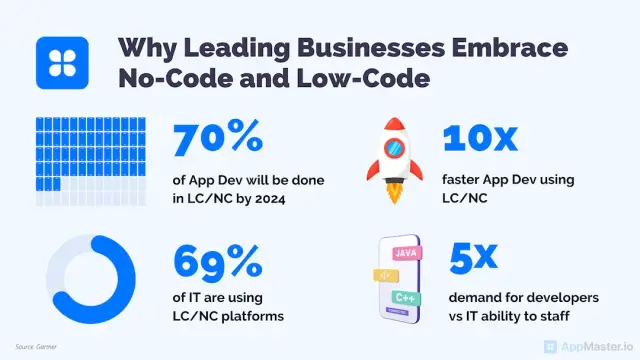Crucial Considerations for Budgeting Mobile App Developer Hiring
Discover the key factors to consider when budgeting for hiring a mobile app developer, from talent acquisition, development costs, and long-term strategy.

When it comes to hiring a mobile app developer, the budgeting process plays a vital role in ensuring a successful and cost-effective outcome. Mobile apps have become an integral part of our daily lives, and their demand continues to surge across industries. However, navigating the financial aspects of hiring a mobile app developer requires careful consideration of various factors to ensure a smooth development journey while optimizing resources.
Assessing Project Scope
Before embarking on the journey of hiring a mobile app developer, you must first assess the scope of your project. This is a crucial step, as it will directly impact your budget and the talent you choose to hire. When assessing your project's scope, consider the following factors:
- Platform compatibility: Are you targeting one specific platform (e.g., Android or iOS), or do you want to build a cross-platform mobile app? Developing for a single platform may reduce your development costs, but it may also limit your target audience.
- Size and complexity: Is your app relatively simple, or will it require highly complex features and systems? Small apps are generally less expensive to create, while more involved apps will require a larger investment.
- Integration with existing systems: Will your app need to integrate with any existing software systems or services? Integration can add to the overall complexity of your project and the resources required to complete it.
- User Experience (UX) and User Interface (UI): High-quality UX and UI design are essential for a successful mobile app, but they can also be time-consuming and costly. Be sure to factor in UX/UI design costs when budgeting for your app.
- Marketing and promotion: Your mobile app will require marketing and promotion to reach its target audience. Keep these costs in mind when budgeting for your mobile app project.
By thoroughly evaluating these factors, you will develop a clear vision of your project's scope and the necessary resources to hire the right mobile app developer.
Freelancer vs. In-House vs. Mobile App Development Companies
Now that you have a clear understanding of your project's scope, it's time to consider the best hiring options for your mobile app developer. There are three primary options for hiring mobile app developers: freelancers, in-house developers, or mobile app development companies. Each has its pros and cons, so weigh the benefits and drawbacks to find the best fit for your project.
Freelancer
Hiring a freelance mobile app developer can be a cost-effective choice, especially for smaller projects or startups with limited budgets. Freelancers typically charge hourly or project-based rates, allowing for a relatively predictable budget. However, there are some potential drawbacks to consider:
- Freelancers may have less access to resources compared to an in-house team or development company, which may lead to longer development timelines.
- Communication and collaboration can be challenging, particularly if you're working with freelancers in different time zones.
- Quality assurance and bug testing may not be as rigorous as with dedicated development teams or companies.

In-House Developer
Employing an in-house mobile app developer can provide several advantages such as smoother communication, the ability to closely monitor your app's development, and faster response times to unforeseen challenges. However, in-house developers can come with higher costs, including salary, benefits, and additional overhead expenses, like hardware and software.
Mobile App Development Company
Hiring a mobile app development company may be the ideal choice for larger, more complex projects that require a diverse set of skills and resources. Development companies often provide full-scale services, encompassing design, development, testing, marketing, and maintenance. While this option can be more expensive, it can also provide higher quality and more comprehensive support throughout the project.
Understanding and Comparing the Cost Factors
The cost of hiring a mobile app developer can vary widely, depending on the factors mentioned above. It's essential to understand and compare these costs to make a well-informed decision. Here are some primary cost factors to consider when budgeting for a mobile app developer:
- Developer experience and expertise: More experienced developers and specialists in specific areas, such as UI/UX design or data integration, can command higher rates. However, they may also bring valuable skills and capabilities to your project, potentially reducing development time and ensuring a higher quality end product.
- Geographic location: Developers from different parts of the world may have varying wage expectations. For example, developers from regions with lower costs of living may offer more competitive rates. However, this must be balanced against potential communication difficulties and differing quality standards.
- Development timeline: Mobile app projects with tight deadlines may require a larger development team or a higher level of expertise to meet your timeline. This can result in increased costs but can ensure timely delivery and quicker launch.
- Long-term maintenance and updates: The ongoing maintenance and updates required for your mobile app can have a significant impact on your total budget over time. Consider the costs of retaining your mobile app developer for post-development maintenance or negotiating a maintenance contract with a development company.
By analyzing these cost factors and comparing the different options available, you can create an effective budget and hire the best mobile app developer for your project. Consider the trade-offs between cost, experience, location, and other factors when making your decision.
Post-Development Expenses
When budgeting for hiring a mobile app developer, it's crucial to look beyond the initial development costs. Post-development expenses should be considered to ensure a comprehensive understanding of the total project cost. These expenses include:
Maintenance and Updates
Mobile applications require ongoing maintenance to prevent performance issues and address vulnerabilities. Be prepared to allocate budget for periodic updates to fix bugs, improve user experience, and stay compliant with operating system requirements. Maintenance costs can range from 15% to 20% of the initial app development cost annually.
App Store and Licensing Fees
Releasing your app on app stores often involves fees. Both the Google Play Store and Apple App Store require specific fees, such as a one-time registration fee for the Play Store and an annual fee for the App Store. Furthermore, you may require third-party licensing for software or resources used in your app, which can add to the overall cost.
Marketing and Promotion
Building a successful app also considers the marketing and promotion efforts needed to reach your target audience. Allocate a portion of your budget to research and implement suitable marketing strategies like app store optimization, advertising, influencer marketing, or content marketing. Ignoring this aspect may lead to your application getting lost amongst millions of others on app stores.
User Support and Training
As your mobile app grows in popularity, customer support plays a critical role in retaining users and maintaining a good reputation. Allocate resources to train support staff or outsource helpdesk services to ensure timely user assistance. In addition, make sure developers and other team members receive continuous training in the technologies used in your app to stay up-to-date with industry trends.
Future-Proofing Your Mobile App Strategy
When you hire a mobile app developer, it's important to plan long-term to ensure your app remains successful. Future-proofing your mobile app strategy involves several aspects:
Scalability
As your mobile app usage grows, you need a strategy to scale your app and infrastructure to handle increased traffic and user demands. Consider choosing a developer proficient in scalable architecture and technologies like cloud services. This will help ensure a smooth transition when expanding your application.
Security and Compliance
Consider integrating a security-by-design approach, whereby your developer prioritizes security from the initial stages of development. Regular audits and monitoring should be a part of the app lifecycle. Furthermore, ensure your app complies with privacy regulations like GDPR or CCPA to avoid potential legal issues or fines.
Adapting to Technological Changes
As technology evolves, your app should adapt to stay relevant. Plan for regular application updates and enhancements to maintain compatibility with modern devices and software. Inclusion of emerging technologies like artificial intelligence, machine learning, or Internet of Things could be your differentiating factor in the app market.
Evaluating App Performance Metrics
Monitor your app's performance and gather regular feedback from users to understand areas that require improvement. Keeping an eye on app analytics and user behavior is essential to make data-driven decisions and implement changes that benefit your users and business. Plan for regular performance evaluations and schedule development cycles accordingly.
Considering No-Code Platforms as an Alternative
As an alternative to traditional mobile app development processes, no-code platforms like AppMaster are gaining popularity to build mobile applications. The benefits of using no-code platforms include:
- Cost-effectiveness: No-code platforms provide a more affordable solution for developing mobile apps, eliminating the need to hire a full-time developer. With subscription-based pricing models, you can choose a plan based on your business needs and budget.
- Speed and efficiency: Drag-and-drop UI builders and visually create data models, business logic, and API endpoints. This reduces development time and makes it easier for non-technical team members to contribute to app creation.
- Collaboration and ownership: No-code platforms enable collaboration, allowing multiple team members to work on the project, increasing visibility, and promoting a higher sense of ownership.
- Scalability and performance: Many no-code platforms offer backend applications generated with languages like Go, providing amazing scalability and performance for enterprise and high-load use-cases.
- App updates and maintenance: No-code platforms offer an easy method of updating and maintaining your app as requirements change, eliminating technical debt.

Using a no-code platform like AppMaster can help you build mobile applications faster and more cost-effectively, even with limited development experience. However, ensure evaluating a no-code solution based on your app requirements, budget, and long-term goals before making a decision.
Conclusion
The budgeting process for hiring a mobile app developer is a critical step in ensuring a successful and cost-effective outcome. By carefully considering the crucial factors discussed in this article, organizations can make informed decisions and optimize their resources when embarking on a mobile app development project.
It is worth noting that the industry of mobile app development has evolved with the emergence of no-code platforms like AppMaster. These platforms offer a powerful alternative for businesses with budget constraints or limited technical expertise. This no-code approach significantly reduces development costs and accelerates the time-to-market for mobile apps.
FAQ
Budgeting is crucial when hiring a mobile app developer to ensure effective financial planning and resource allocation for the development project. It helps set realistic expectations, avoid cost overruns, and optimize the return on investment.
While it is essential to consider the budget, prioritizing cost over quality can negatively impact the app's success. It is crucial to strike a balance between the budget and the developer's expertise, experience, and portfolio. Opting for a skilled developer or development team who can deliver a high-quality app may yield better long-term results.
Yes, there are cost-saving alternatives such as using no-code or low-code platforms that enable building mobile apps without extensive coding knowledge. These platforms provide pre-built templates, drag-and-drop interfaces, and ready-made functionalities. One such platform is AppMaster, which offers a no-code solution for creating mobile apps quickly and cost-effectively.
Ongoing maintenance is an important aspect of budgeting as it ensures the app remains functional, secure, and up-to-date. Consider allocating a portion of the budget for post-launch maintenance, bug fixes, updates, and future feature enhancements.
To ensure transparency, clearly communicate your budget constraints and expectations to the developer or development agency from the outset. Request a detailed breakdown of costs, milestones, and deliverables. Regularly review and discuss the progress and budget with the developer to maintain transparency throughout the project.





